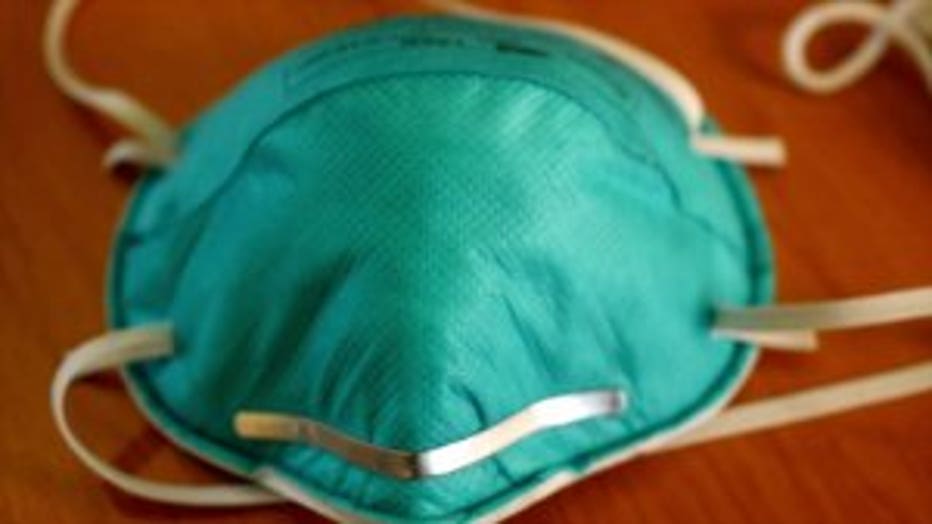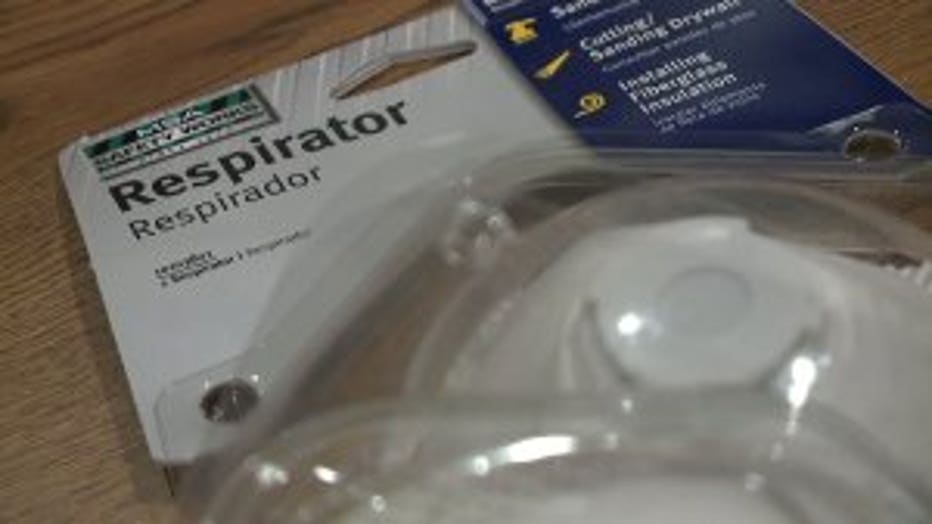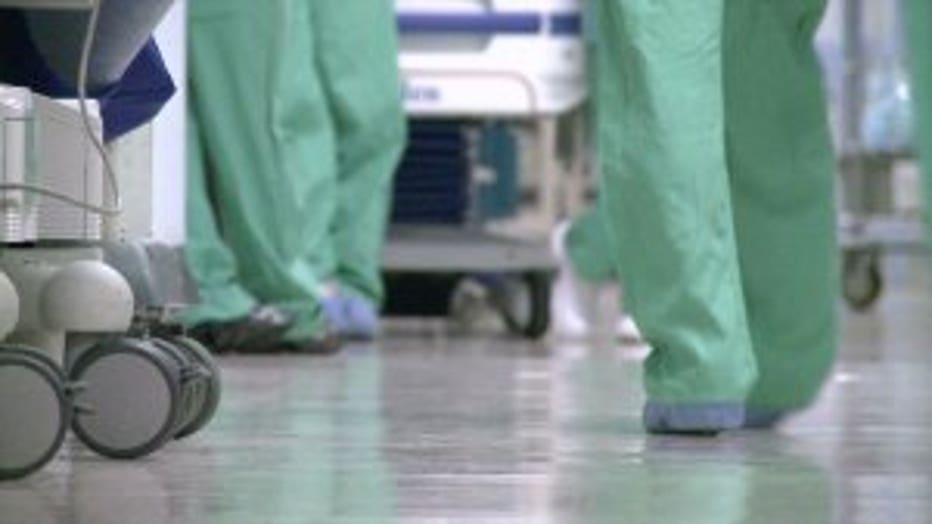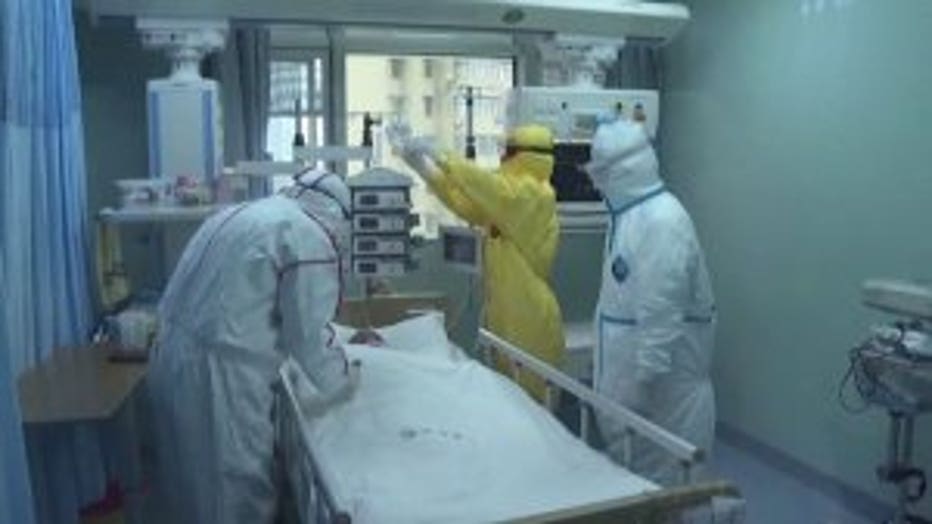'We're scared:' SE Wisconsin nurses warn of limited medical supplies, future hospital overflow
MILWAUKEE -- Nurses in Southeast Wisconsin describe limited access to medical supplies, fears of spreading COVID-19 to their patients and their families, and concerns about the abilities of local hospitals to deal with possible surges of patients in the coming weeks. More than a dozen local health care workers sent emails and social media messages to FOX6; three agreed to do recorded phone interviews on the condition of anonymity because they are not authorized to speak to the press. "I'm like a little nervous to answer these questions, but they're very important questions," an intensive care unit (ICU) nurse said as she described treating patients who come in with COVID-19 symptoms. "I get the patients that are truly unable to breathe, as they're gasping for air, they're unable to talk, they're requiring a very high amount of oxygen. It's painful to watch them breathe." Every health care worker who spoke to FOX6 expressed frustration with limited medical supplies; specifically, there is a nationwide effort to secure personal protective equipment (PPE) like N95 masks, which are respirators that filter air particles. "I need to use the same mask the entire day," the ICU nurse said. "I need to keep it in a paper bag. And I need to use that mask when I go into every single patient's room that is suspected to have COVID."

"The moisture from your breath is getting into the material and it's getting it wet," a labor and delivery nurse said. "So every time you're putting it back on, the seal and how well it's working is being degraded. So by that last time you put it on on your shift, how well is it really working?" "We can't even order gloves for our bag," a home health worker said. "They're alloting those now...we can't even have a basic surgical mask." "The rules have been bent because of the shortage," the ICU nurse said. "Which I understand - I'd rather have something than nothing." 'It's terrifying'

Nurses say they're worried limited access to PPE will result in spreading COVID-19 to other patients, but they say what often gets overlooked is the possibility they will bring the virus home to their families. "I've been wearing two layers and peeling one off on my deck before I come in the door and throwing it right in the washer," the home health worker said. "I really do not want to bring this home to my family, nor do I want to share it with my 88-year-old heart failure patient that's diabetic and on oxygen." "I myself, I am OK," the ICU nurse said. "But I can tell you that every time I am heading to work I am scared." She paused and began to cry. "Sorry," she said, her voice shaking. "I'm scared to bring it home to my kids. So really that's, it's terrifying actually." "I can’t say I was ever prepared for this," the ICU nurse added. "Of course, I am trained on how to properly put my PPE on and whatnot. But as far as, other than that, how to mentally deal with it? I’ve received nothing."Manageable...for now All three nurses who spoke with FOX6 say they're able to handle their current workload, but they're bracing for the impact of the next few weeks. "We're still waiting to hit the peak," the labor and delivery nurse said. "It's going to keep happening."

"I cannot imagine that this will be over in two weeks," the ICU nurse said. "If anything, we may see the worst in two weeks. I can tell you the hospital policies are changing daily...we are still trying to figure out how to deal with this in the hospital. So if there is a large influx, I am scared to see what the outcome would be in a hospital setting.""A lot of us won’t say it, but we’re scared," the labor and delivery nurse said. "Because it’s going to take literally one of us to come to work one day who has a positive exposure for the cascade effect. It can literally just wipe out an entire unit’s staffing structure for weeks." "I'm not trying to be a big whistleblower and you know what, I've been doing this a long time and I love my job," the home health worker said. "But don't you deny basic safety equipment. Because then what are they going to do when we're all sick?" Local health systems respond FOX6 is not naming the employers of the health care workers, who said they're worried they will lose their jobs if their identities are revealed. However, FOX6 did contact southeast Wisconsin's larger health systems with questions about their policies, distribution of supplies, and protection for staff. Advocate Aurora Health, Ascension Wisconsin, and Froedtert Health said they are following Centers for Disease Control and Prevention guidelines in their efforts to conserve supplies in anticipation of future demand.

While the CDC offers guidance for extended use and limited reuse of N95 respirators, it warns that "there is no way of determining the maximum possible number of safe reuses for an N95 respirator." A spokesperson for Advocate Aurora Health sent the following statement:
"For the health and safety of our team members and patients, we have updated our personal protective equipment (PPE) standards to help conserve supplies as we test and care for patients with COVID-19. This includes re-use of certain supplies in line with guidance from the CDC, the American College of Emergency Physicians and infection prevention physicians. We have the necessary supplies for now, but expect the demand will increase significantly. While some supply closets may appear low – something team members are not accustomed to seeing – we are delivering PPE to sites when they need it to help conserve and manage use."
A Froedtert Health spokesperson sent an email saying, "We will continue to work and collaborate with national, regional and local health care organizations to help manage the health care needs of our patients, staff and community." Click here to read the full statement and learn more about how to donate health care supplies, including PPE. ProHealth Care did not specifically address employee protections, but did say it is sorting through personal protective equipment donations and "distributing supplies to health care professionals who are providing direct care to patients." An Ascension Wisconsin spokesperson emails the following statement:
"At this time, Ascension Wisconsin is not critically low on supplies, but we are implementing aggressive conservation methods to ensure we're prepared for an anticipated increase in patient volumes. Ascension Wisconsin is following the updated CDC guidelines regarding suspected and confirmed COVID-19 cases and the use of personal protective equipment (PPE). The safety of our patients, associates and providers is our utmost priority as we all work to slow the transmission of COVID-19 and care for all those in need." "Ascension Wisconsin is taking proactive steps with our distributor and suppliers to ensure access to supplies. We are arranging expedited shipments directly from manufacturers, assessing alternative products and taking advantage of our abilities as a national system to make intra-hospital inventory transfers when appropriate. We have also implemented conservation measures, in anticipation of further supply chain disruption over the coming months due to COVID-19. Additionally, we have postponed surgeries, procedures and tests that are deemed non-urgent to ensure the availability of resources to meet emergent health needs during this pandemic." "Ascension Wisconsin also is accepting donations for personal protective equipment. Individuals or companies interested in making a donation should contact Ascension Wisconsin's Foundation partners at AscensionWIFoundations@ascension.org. Once the donation is confirmed, arrangements will be made to pick up the donation and deliver it to the appropriate Ascension Wisconsin facility."
All the health care workers who spoke to FOX6 urge people in the community to wash their hands and stay home. "Even if you’re healthy and asymptomatic, you could still pass it on to someone who’s not healthy," the ICU nurse said. "So please, don’t be selfish." "For the greater good, we have to do what we have to do," the labor and delivery nurse said.

